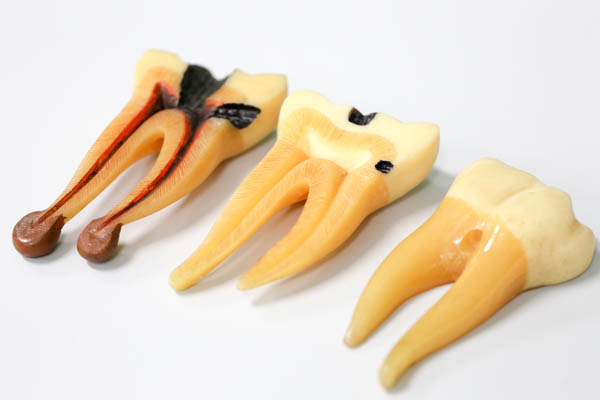Tooth decay is one of the most common dental issues dentists treat. The early stages of decay can be difficult to detect, but it will eventually lead to some serious dental problems if left unaddressed.
Causes of tooth decay
Tooth decay is caused by acids that are present in your mouth. Some of these acids come from the things you eat like certain fruits and drinks. Oral bacteria create the rest of the acid. These organisms feast on food particles that are left on the teeth after meals, and they excrete acids after eating.
The enamel can withstand these acids, but when left exposed to them for prolonged periods, they can weaken a tooth’s structure and its enamel. Once the enamel weakens, cavities begin to form on teeth surfaces. It always starts with a tiny dent, but the hole gradually expands as the decay continues. If left unchecked, the decay will eventually make its way to the pulp chambers which houses and protects the tooth’s nerve and blood vessels.
Patients become susceptible to infections when the contents of the pulp chamber intermix with saliva, bacteria and acids in the mouth. Dentists can stop the early stages of tooth decay with dental fillings, but the later stages usually require a root canal. When a severe infection forms, a dentist may recommend an extraction.
Symptoms of tooth decay
Common symptoms of tooth decay include:
- Tooth sensitivity
- Toothaches
- Gum inflammation and redness
- Cavities
- Bad breath
- Bad taste in the mouth
- Infections
Preventing tooth decay
Preventing tooth decay is not particularly difficult. It is only a matter of making dental hygiene a top priority and avoiding certain foods. Here is how to keep tooth decay at bay:
1. Brush twice daily
Brushing twice a day will ensure the teeth are not exposed to things that can damage them for prolonged periods.
2. Floss daily
Flossing is just as important as brushing. It cleans the spaces between teeth that a toothbrush cannot reach. You should floss at least once each day.
3. Use a fluoride mouthwash
Using mouthwash that contains fluoride ensures that your teeth are properly mineralized. Fluoride helps to strengthen teeth enamel which protects them from decay.
4. Be careful with sugar
Sugar is not just bad for your health; it is just as bad for your teeth. Consuming too many sugary treats can lead to tooth decay. Sugar is acidic in nature, and it sticks on teeth surfaces. The bacteria that damage teeth love sugar as much as people do.
5. Drink lots of water
Water helps to clean the teeth and gums. It washes away acids and food particles that bacteria eat.
6. Visit a dentist twice a year
Regular visits to a dentist will help to prevent decay. A dental cleaning will remove tartar and plaque, and the dentist can also perform protective procedures like a fluoride treatment.
If you are particularly susceptible to tooth decay, it is a good idea to ask your dentist about other tips for preventing tooth decay since they are familiar with your dental history. Give us a call today for more information!




